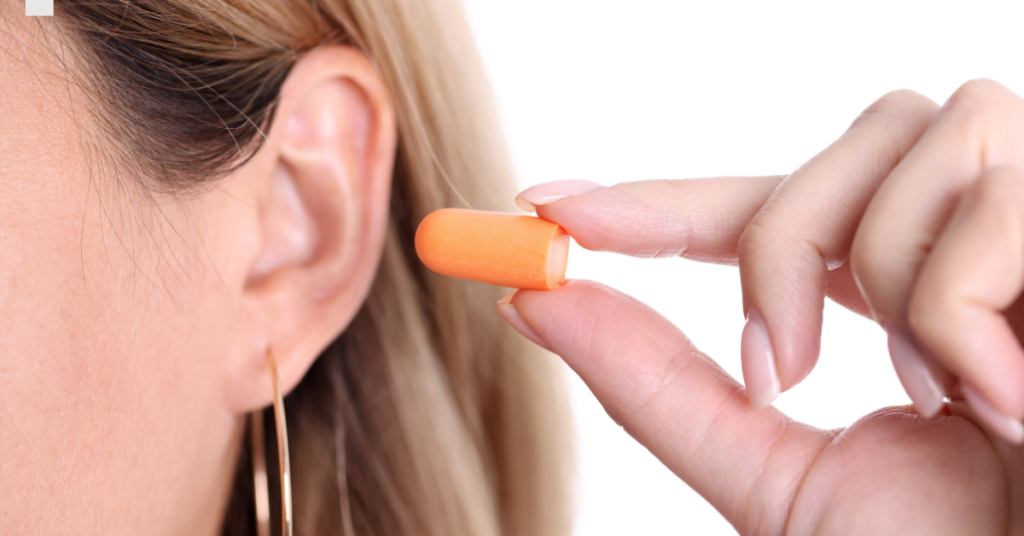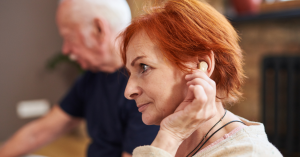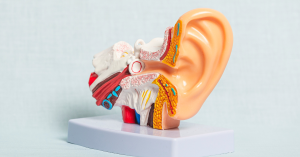The Best Earplugs for Concerts: Protect Your Hearing Without Missing a Beat
Meta Description: Discover the best earplugs for concerts that protect your hearing while delivering crystal-clear sound. Stay safe and enjoy the music!
Focus Keyphrase: best earplugs for concerts
Introduction
There’s nothing quite like the thrill of live music — the pulsing bass, the roar of the crowd, and the electric energy in the air. But amid the excitement, many concertgoers overlook a serious risk: exposure to dangerously high noise levels. Whether you’re a front-row regular or someone who enjoys the occasional festival, your hearing is at risk every time you attend a loud concert.
The good news is that protecting your ears doesn’t mean sacrificing your experience. Thanks to high-fidelity earplugs designed specifically for music lovers, you can enjoy every guitar riff and vocal run without subjecting your ears to harmful sound levels. These earplugs don’t just lower volume — they preserve the clarity of the music, letting you stay immersed in the moment while keeping your ears safe.
In this article, we’ll explore why hearing protection is essential at concerts, what features to look for in the best earplugs, and which models are worth your investment. Whether you’re a seasoned concert-goer or planning your first show, understanding your options can help you rock out safely for years to come.
Why Hearing Protection Is Essential at Concerts
Concerts are thrilling, but they’re also one of the most common sources of damaging noise exposure. Live music events often exceed 100 decibels (dB) — well above the threshold of safe listening. According to the World Health Organization, exposure to sounds above 85 dB for extended periods can cause permanent hearing damage, and most concerts surpass this level easily and frequently.
The danger isn’t just for performers or people in the front row. Even audience members seated farther from the speakers are at risk, especially during prolonged shows or music festivals. The effects might not be immediate, but over time, repeated exposure can lead to noise-induced hearing loss (NIHL) — an irreversible condition caused by damage to the hair cells in the inner ear.
One of the most common early signs of hearing damage is tinnitus, a persistent ringing, buzzing, or hissing sound in the ears. For some, it may be temporary after a loud concert; for others, it becomes a lifelong issue. Musicians and avid concertgoers often report chronic tinnitus that affects their sleep, focus, and overall quality of life.
It’s also worth noting that age doesn’t protect you — whether you’re 25 or 65, your ears are equally vulnerable to excessive sound levels. In fact, adults over 50 are often more susceptible to cumulative hearing damage, making prevention even more critical. Protecting your hearing now can help preserve your ability to enjoy music, conversation, and daily sounds as you age.
Fortunately, modern earplugs have come a long way from the cheap foam options of the past. Today’s high-fidelity models are designed to reduce volume evenly across frequencies, so you don’t lose the richness and detail of the music. They allow you to enjoy concerts at a safer volume — without muffling the sound or isolating you from the experience.
Hearing loss is invisible, gradual, and often permanent. But it’s also 100% preventable. Investing in a quality pair of earplugs isn’t just smart — it’s essential for anyone who values their hearing and wants to keep enjoying live music for years to come.
What to Look for in Concert Earplugs
Choosing the right earplugs for concerts isn’t just about blocking sound — it’s about preserving the music while protecting your ears. Unlike foam earplugs that simply muffle everything, modern concert earplugs are designed with sound fidelity in mind. They reduce volume levels while maintaining the clarity and balance of the audio, so you don’t miss a beat.
Here are the key features to look for when selecting earplugs for live music:
1. Noise Reduction Rating (NRR)
The Noise Reduction Rating indicates how many decibels the earplugs can reduce. Most concert-specific earplugs have an NRR between 12 and 23 dB, which is ideal for lowering the volume to safe levels without silencing the music. Look for a product that matches the typical loudness of the venues you attend — larger, stadium-style concerts may warrant higher protection.
2. High-Fidelity Filters
High-fidelity or “musician’s” earplugs use acoustic filters to evenly attenuate sound across all frequencies. This means you’ll still hear vocals, instruments, and ambient sounds clearly — just at a lower, safer volume. These filters are essential for preserving the full dynamic range of music.
3. Comfort and Fit
Earplugs should be comfortable enough to wear for hours. Look for soft, hypoallergenic materials like medical-grade silicone. Many brands offer multiple sizes or include interchangeable tips to ensure a snug, secure fit that stays in place even during active movement.
4. Discreet Design
For those who prefer a subtle look, many earplugs are designed to be low-profile or nearly invisible when worn. Clear silicone and ergonomic shapes make them blend into your ear canal, so you can protect your hearing without drawing attention.
5. Reusability and Durability
Unlike disposable foam plugs, most high-fidelity concert earplugs are reusable. They typically come with a carrying case and can last for years with proper care. This not only saves money over time but is also more environmentally friendly.
6. Ease of Cleaning
Since reusable earplugs go in your ears repeatedly, hygiene matters. Choose options that are easy to clean with mild soap and water or include cleaning tools. This helps prevent ear infections and prolongs the life of the product.
7. Price and Value
While high-end custom earplugs can cost over $100, many excellent universal-fit models range between $20 and $50. Investing in a reliable pair that balances performance, comfort, and affordability can make a huge difference in your concert experience.
By understanding what to look for in earplugs, you’ll be better equipped to find a pair that matches your preferences, budget, and lifestyle — all while preserving the sounds you love and protecting your hearing.
Best High-Fidelity Earplugs for Music Lovers
When it comes to enjoying concerts safely, high-fidelity earplugs are the gold standard. Designed specifically for live music environments, these earplugs reduce harmful volume levels while preserving sound clarity — ensuring you hear every detail, just at a safer decibel level. Below are some of the top-rated concert earplugs available today, each offering unique features to suit different needs and budgets.
1. Etymotic ER20XS High-Fidelity Earplugs
Best for: Budget-conscious audiophiles
Etymotic is a trusted name in hearing protection, and the ER20XS series delivers excellent fidelity at an affordable price. These earplugs reduce volume by up to 20 dB and use a unique filter system to maintain sound balance.
- Pros: Affordable, compact design, excellent clarity
- Cons: May feel stiff in smaller ear canals
- Price Range: ~$15–20
2. Loop Experience Pro
Best for: Style-conscious concertgoers
Loop earplugs have become a fan favorite thanks to their sleek, circular design and customizable fit. The Loop Experience Pro model includes interchangeable tips and a -18 dB filter that preserves rich sound while reducing harshness.
- Pros: Stylish, discreet, comes with multiple tip sizes
- Cons: Case can be bulky
- Price Range: ~$30–40
3. EarPeace Music Pro Earplugs
Best for: Versatility and durability
EarPeace earplugs are widely used by musicians and DJs. The Music Pro version comes with three filter sets (17, 20, and 26 dB), allowing users to adjust based on venue loudness. They’re made from soft silicone and include a premium metal case.
- Pros: Adjustable filters, comfortable, durable case
- Cons: Slightly more expensive
- Price Range: ~$40–50
4. Vibes High-Fidelity Earplugs
Best for: First-time users
Vibes are a great entry-level option for those new to concert earplugs. With a reduction level of around 15 dB, they provide just enough protection for most shows while maintaining clarity. They’re also virtually invisible when worn.
- Pros: Low-profile, affordable, comfortable
- Cons: Not ideal for very loud venues
- Price Range: ~$25–30
5. Custom Molded Earplugs (e.g., Westone, ACS Pro)
Best for: Frequent concertgoers and professionals
For serious audiophiles or musicians, custom-molded earplugs offer the ultimate fit and sound quality. They’re made from impressions of your ears and can be paired with interchangeable filters for varying levels of protection.
- Pros: Perfect fit, best sound fidelity, long-lasting
- Cons: High upfront cost, requires audiologist visit
- Price Range: ~$150–300
Whether you’re attending a local gig or a multi-day music festival, these high-fidelity earplugs can significantly improve your experience — letting you enjoy the music safely, clearly, and comfortably.
Custom vs. Universal Fit: Which Is Right for You?
When shopping for concert earplugs, one of the most important decisions you’ll face is choosing between custom-molded and universal-fit options. Both have their strengths, and the right choice depends on your personal needs, how often you attend live events, and your budget. Let’s break down the key differences to help you decide.
Universal-Fit Earplugs
These are the most commonly available earplugs and are often made from soft silicone or foam. Designed to fit a wide range of ear shapes, they typically come in multiple sizes or include interchangeable tips for a better seal.
Pros:
- Affordable: Most cost between $15 and $50
- Easy to find: Available online or at music retailers
- Convenient: No appointment needed, ready to use out of the box
- High-fidelity options available: Brands like Loop, Vibes, and EarPeace offer excellent sound quality
Cons:
- Fit may not be perfect: Can cause discomfort during long concerts if not the right size
- Less durable: May need replacing more often, especially if worn frequently
- Variable performance: Depends on how well they seal your ears
Custom-Molded Earplugs
These earplugs are made using impressions of your ears, usually taken by an audiologist. The result is a perfect fit, often paired with interchangeable filters that provide adjustable levels of noise reduction (typically 9 to 25 dB).
Pros:
- Superior comfort: Designed to match your unique ear shape, they can be worn for hours without discomfort
- Best sound fidelity: Maintain musical detail and clarity even at lower volumes
- Durable and long-lasting: Can last up to 5 years with proper care
- Professional-grade: Preferred by musicians, DJs, and frequent concertgoers
Cons:
- Higher cost: Prices typically range from $150 to $300+
- Requires a fitting: Must visit an audiologist or hearing professional
- Longer turnaround time: May take a few weeks from fitting to delivery
Which Should You Choose?
If you attend occasional concerts or are just starting out with hearing protection, a high-quality universal-fit earplug is likely the best choice. They offer a good balance of performance and affordability.
On the other hand, if you’re a frequent concertgoer, musician, or have difficulty finding a comfortable fit, the investment in custom earplugs is well worth it. The comfort and acoustic quality can significantly enhance your concert experience while offering top-tier protection.
Ultimately, both options are far superior to not wearing earplugs at all. The most important factor is consistency — the best earplugs are the ones you’ll actually wear, every time.
Tips for Using Earplugs at Concerts
Buying the right earplugs is just the first step — knowing how to use them properly can make a big difference in both protection and comfort. Whether you’re a first-time user or looking to optimize your setup, these tips will help you get the most out of your earplugs at live music events.
1. Insert Them Correctly
Improper insertion is one of the most common reasons people find earplugs uncomfortable or ineffective. For universal-fit models:
- Gently pull your ear up and back with one hand to straighten the ear canal.
- Insert the earplug with the other hand, twisting slightly if needed, until it forms a snug seal.
- For foam plugs, compress them fully before inserting and hold them in place until they expand.
High-fidelity earplugs often come with instructions — follow them carefully to ensure optimal fit and performance.
2. Arrive Early to Acclimate
If you’re new to wearing earplugs, they may feel strange at first. Arriving before the show starts gives you time to adjust and fine-tune the fit. You’ll also get used to the sound with earplugs in before the music gets louder.
3. Use the Right Filter for the Venue
Some earplugs, like EarPeace or custom models, come with interchangeable filters. Use higher attenuation (e.g., 20–26 dB) for louder shows, especially in small or indoor venues. For acoustic sets or outdoor concerts, a lower dB filter may suffice.
4. Store and Clean Your Earplugs
Keep your earplugs in a protective case when not in use — this prevents them from collecting dust or getting damaged in your pocket or bag. Clean reusable earplugs regularly with mild soap and warm water (or follow the manufacturer’s instructions). Avoid using alcohol or harsh chemicals that may degrade the materials.
5. Bring a Backup Pair
Concerts can get chaotic, and it’s easy to lose an earplug in a crowded venue. Having a backup pair ensures you’re never caught without protection, especially at festivals or multi-day events.
6. Don’t Remove Them Mid-Show
Your ears adjust to the lower volume with earplugs in, but if you remove them halfway through a loud concert, the sudden spike in volume can be jarring — and damaging. Keep them in for the full duration of the performance to maintain consistent protection.
7. Listen to Your Ears
Even with earplugs, your ears can feel fatigued after long exposure. If you experience ringing or muffled hearing after a show, give your ears a break from loud environments for a day or two. Repeated exposure, even with partial protection, can still accumulate damage over time.
Wearing earplugs doesn’t mean missing out — it means you’re taking steps to ensure you can keep enjoying live music long into the future. With the right habits and a little preparation, you’ll barely notice them — but your ears will thank you.
Conclusion
Live music is one of life’s great pleasures, but it shouldn’t come at the cost of your hearing. With concerts frequently reaching sound levels that can cause permanent damage, it’s more important than ever to take your hearing health seriously. Fortunately, the right pair of earplugs can help you strike the perfect balance — allowing you to fully enjoy the energy, clarity, and emotion of live performances while keeping your ears safe.
Today’s concert earplugs offer impressive technology, from high-fidelity filters that preserve musical detail to custom-molded options that provide a tailored fit for maximum comfort and performance. Whether you’re an occasional attendee or a die-hard music fan, there’s a solution out there that fits your needs and budget.
By investing in a quality pair of earplugs and learning how to use them effectively, you can ensure that your concert experiences remain both exhilarating and ear-safe. Protecting your hearing isn’t about dampening the sound — it’s about enhancing your ability to enjoy music for the long haul.
So the next time you’re heading to a show, don’t forget your earplugs. They might just be the most important part of your concert kit.
FAQ
What makes concert earplugs different from regular foam earplugs?
Concert earplugs are designed with high-fidelity filters that reduce volume evenly across all frequencies, preserving the clarity and detail of music. In contrast, regular foam earplugs tend to muffle sound and distort the listening experience, making them less suitable for live music environments.
Can I still hear conversations while wearing concert earplugs?
Yes, most high-fidelity earplugs allow you to hear speech clearly, especially in noisy environments. They reduce overall volume without blocking important mid and high frequencies, making it easier to hold conversations without shouting or straining.
Are custom earplugs worth the cost?
If you attend concerts frequently or are particularly sensitive to loud noise, custom earplugs are often worth the investment. They offer superior comfort, sound quality, and longevity compared to universal-fit options. However, high-quality universal earplugs can also provide excellent protection at a lower cost.
How do I know if my earplugs are inserted correctly?
A properly inserted earplug should feel snug without causing discomfort. You should notice a reduction in volume but still hear music and speech clearly. If the plug feels loose or falls out easily, try a different size or reinsert it following the recommended technique.
Can wearing earplugs prevent tinnitus?
While there’s no guaranteed way to prevent tinnitus, wearing earplugs at concerts can significantly reduce your risk. Tinnitus is often caused by repeated exposure to loud sounds, and using earplugs to lower sound levels can help protect the delicate structures in your inner ear.






